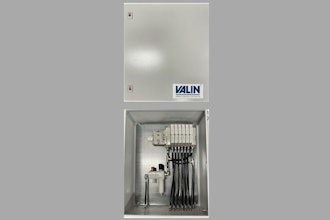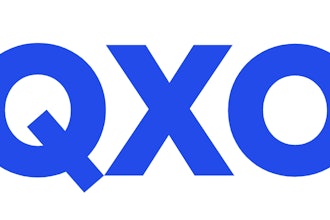
Like businesses in every industry, distributors have plenty of legal and regulatory obligations to comply with, from those involving workplace safety to wage and hour rules to anti-discrimination laws. As of Jan. 1, most distributors have another legal item to add to that list. They are likely among the estimated 36 million American companies that must now comply with the complicated and mandatory reporting requirements of the federal Corporate Transparency Act (CTA).
Under the CTA, distributors that do not qualify for one of the CTA’s exemptions must provide the federal government with detailed information about their ownership and identify any individuals who exert “substantial control” over their company.
As of this writing, there is currently pending litigation challenging the constitutionality of the CTA. However, with the ultimate outcome of that litigation (or other potential litigations) uncertain as it moves its way through appeals, and with the CTA’s mandatory reporting deadlines approaching, distributors should understand what they need to do and when they need to do it to avoid hefty penalties for non-compliance if the law survives the current challenge.
What Is the Corporate Transparency Act?
Signed into law in 2021, the CTA was designed to help the federal government combat illegal money laundering. By requiring companies to reveal the identities of their owners and those who truly control their activities, the law would expose "the use of shell and front companies by illicit actors who use them to obfuscate their identities and launder ill-gotten gains through the United States."
The CTA attempts to accomplish this goal by requiring all “Reporting Companies” to provide their "Beneficial Ownership Information" (BOI) to the Financial Crimes Enforcement Network (FinCEN) division of the U.S. Treasury Department.
Your Company Is Likely to Be a “Reporting Company” Covered by the CTA
As defined in the CTA, a "Reporting Company" is any corporation, limited liability company, or any other entity created by filing a document (e.g., Articles of Incorporation) with a secretary of state or equivalent agency. Given that few, if any, distributors are general partnerships or sole proprietorships that would fall outside of this definition, they are all likely covered under the act unless they fall within one of its 23 specific exceptions.
Large distributors and publicly traded companies may qualify for one of these exemptions. If a distributor employs more than 20 people full-time in the United States or filed a federal income tax return in the prior year demonstrating more than $5 million in gross receipts or sales and has an operating presence in the United States, it is considered a "Large Operating Company" that is exempt from the CTA.
You should consult with counsel to determine whether your company qualifies for an exemption and/or other aspects of the CTA.
What “Beneficial Ownership Information” Must Distributors Report?
Non-exempt distributors will need to provide FinCEN with BOI about their "Company Applicants" and "Beneficial Owners."
Effectively, a "Company Applicant" is the individual who filed the documents (e.g., Articles of Incorporation) with the secretary of state or similar agency forming the company.
Notably, the reporting of company applicant information only applies to Reporting Companies created on and after January 1, 2024. Such new Reporting Companies need not provide FinCEN with updates regarding Company Applicant information after their initial disclosure.
"Beneficial Owners"
All covered distributors must also disclose information about their "Beneficial Owners." A "Beneficial Owner" is defined as any person who, directly or indirectly, either:
- Owns or controls at least 25% of the company’s ownership interests; or
- Exercises “substantial control” over the company.
That 25% threshold includes both direct and indirect ownership interests, meaning that compliant disclosures must contain all such information.
What Does "Substantial Control" Mean?
Determining whether a person exercises "substantial control" over a distributor such that they are considered a "Beneficial Owner" involves an analysis of the person's actual authority and the actions they are empowered to take on behalf of the company. Under the regulations that implement the CTA, an individual has "Substantial Control" over a distributor if they:
- Serve as a senior officer of the company;
- Have authority over the appointment or removal of any senior officer or a majority of the board of directors (or similar body) of the company; or
- Direct, determine, or have substantial influence over important decisions made by the company, such as:
- Entry into and termination of contracts.
- Acquisition, sale, or lease of the company's principal assets.
- Reorganization, dissolution, or merger.
- Amendment of any company governance documents.
Information BOI That Distributors Must Report to FinCEN
Non-exempt distributors must provide FinCEN with the following information regarding individuals who qualify as Company Applicants or Beneficial Owners:
- Full legal name.
- Date of birth.
- Street addresses (identified as a current residential or business street address).
- Non-expired state identification document or passport.
Reporting Deadlines Depend On When Business Was Established
The CTA's upcoming compliance deadlines largely depend on when the "Reporting Company" was formed.
- Entities Formed in Calendar Year 2024: Covered Reporting Companies created or registered on or after January 1, 2024, and before January 1, 2025, must submit their BOI report within 90 days after the date of the entity's formation (i.e., the filing date of its formation documents).
- Entities Formed Before January 1, 2024: Covered Reporting Companies formed before 2024 must report their BOI on or before January 1, 2025.
- Entities Formed on or After January 1, 2025: Covered Reporting Companies formed after 2024 must file their BOI within 30 days after its date of formation.
Penalties for Non-Compliance With The CTA
Covered distributors that fail to comply with the CTA's reporting requirements risk incurring civil penalties of $500 per day, criminal fines of up to $250,000, and a maximum of five years in federal prison.
As noted, with litigation about the constitutionality of the CTA pending, distributors should consult with experienced counsel before taking any action so that they can determine what obligations exist, if any, under the CTA and ensure compliance.
If you have questions or would like to discuss how the CTA impacts your company, please contact me at 312-840-7004 or [email protected].
The information contained in this article is provided for informational purposes only, and should not be construed as legal advice on any subject matter. The author expressly disclaims all liability in respect to actions taken or not taken based on any or all the contents of this article.























